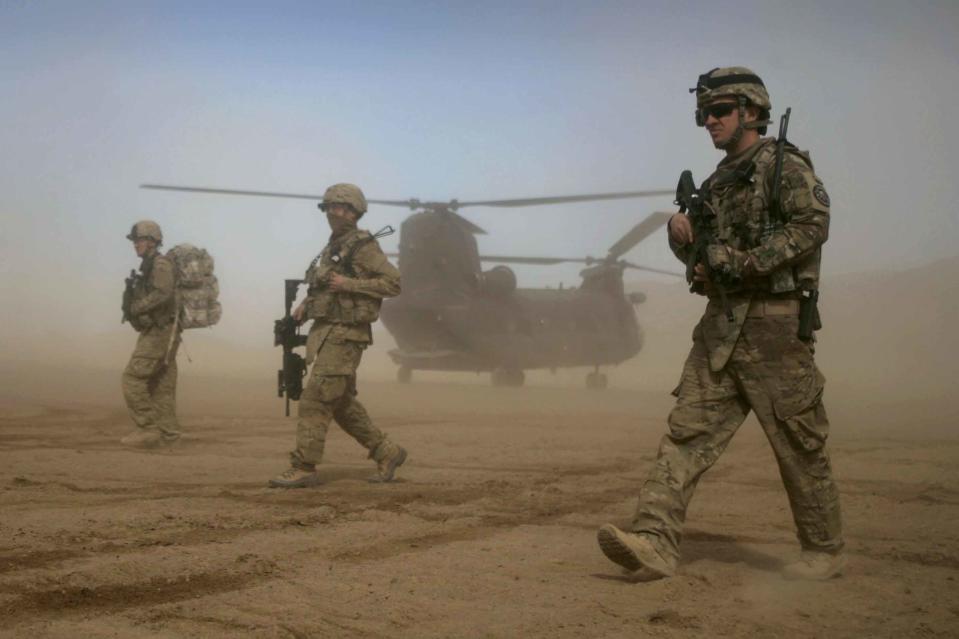KABUL: NATO’s in-country employees could be targeted by the Taliban after after foreign troops withdraw from Afghanistan as they consider the alliance’s Afghan employees “traitors” working for occupying forces.
A former NATO worker, who asked not to be named for security reasons, told DW News Agency that the Taliban, al-Qaida and the Islamic State (IS) consider the alliance’s Afghan employees to be enemies.
“If they know where I worked, they would kill me,” he said.
Sekandar (name changed), who lives in Kabul, started working in 2019 as an interpreter for US Special Forces at Bagram Airbase, the largest US military base in Afghanistan. He told DW News Agency that he faces a dangerous situation now.
“NATO and US forces are withdrawing completely from Afghanistan; I am concerned about my future,” he said. “I don’t know what happens to us now,” he added.
After the US invaded Afghanistan in 2001 and dismantled the Taliban regime, foreign forces relied heavily on domestic help. They needed translators, interpreters, cooks, cleaners, as well security experts who could help them understand the political and security dynamics of the country, reported DW News Agency.
The Taliban view them as “traitors” who helped foreigners consolidate their “illegal” occupation. After almost two decades of war, US President Joe Biden has announced that all US forces will leave Afghanistan by September 11. Other NATO allies, including Germany, agreed to leave the country following the US move.
The unconditional departure of foreign troops from Afghanistan will leave NATO’s regional workers in a difficult position. Kamal Sadat, a former deputy minister for youth, told DW News Agency that NATO’s Afghan employees are likely to suffer after the withdrawal of foreign forces. “Once they leave, former local employees will become easy targets for insurgents because they consider NATO’s Afghan employees as foreign targets,” Sadat said.
“Also, those who have fled the country are worried about their families back home because they are still at risk,” he added. Many NATO member states said that they are trying to help their employees in Afghanistan, such as by potentially offering them asylum in the countries whose forces employed them.
Not all Afghans who worked for NATO in different capacities meet the criteria to apply for asylum programs. Some locals worked for foreign forces for only a few months and don’t meet the criterion of one or two years of employment with NATO forces.
They are still a target for militants, who are not interested in the duration of their NATO employment. Some don’t have contracts or recommendation letters from their employers. They are also in a precarious situation now.
There are employees whose asylum applications have been approved, but they are unsure how long it will take for them to complete the process of interviews and visa issuance.
The Taliban are not the only threat to Afghan forces; terrorist groups such as Islamic State have also gained a foothold.
“The Taliban are stronger than ever. IS and other terrorist groups have gained a foothold in Afghanistan. Therefore, the consequences of a hasty and irresponsible withdrawal from Afghanistan could be dangerous not only for Afghanistan but also for the region and the world,” Raihana Azad, a member of the Afghan parliament, told DW News Agency. (ANI)






